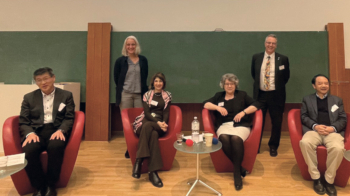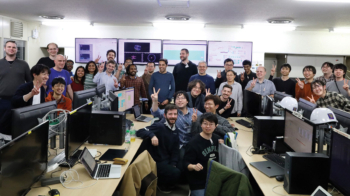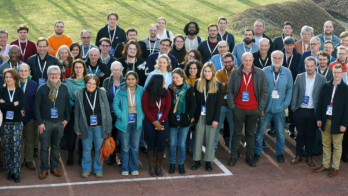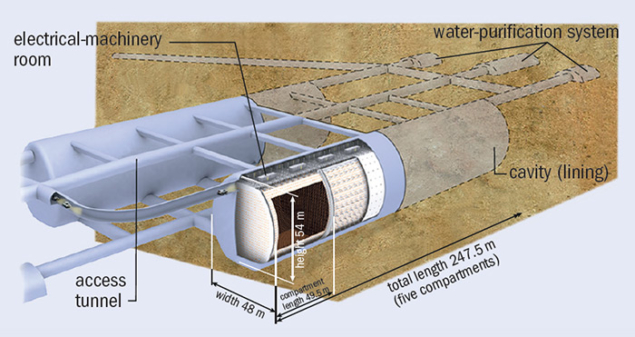
Image credit: HK Collaboration.
The Inaugural Symposium of the Hyper-Kamiokande Proto-Collaboration, took place in Kashiwa, Japan, on 31 January, attended by more than 100 researchers. The aim was to promote the proto-collaboration and the Hyper-Kamiokande project internationally. In addition, a ceremony to mark the signing of an agreement for the promotion of the project between the Institute for Cosmic Ray Research of the University of Tokyo and KEK took place during the symposium.
The Hyper-Kamiokande project aims both to address the mysteries of the origin and evolution of the universe’s matter and to confront theories of elementary-particle unification. To achieve these goals, the project will combine a high-intensity neutrino beam from the Japan Proton Accelerator Research Complex (J-PARC) with a new detector based on precision experimental techniques developed in Japan – a new megaton-class water Cherenkov detector to succeed the highly successful Super-Kamiokande detector.
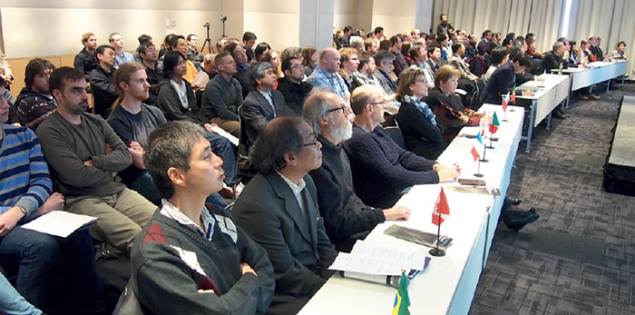
Image credit: ICRR.
The Hyper-Kamiokande detector will be about 25 times larger than Super-Kamiokande, the research facility that first found evidence for neutrino mass in 1998. Super-Kamiokande’s discoveries that, in comparison to other elementary particles, neutrinos have extremely small masses, and that the three known types of neutrino mix almost maximally in flight, support the ideas of theories that go beyond the Standard Model to unify the elementary particles and forces.
In particular, the Hyper-Kamiokande project aspires not only to discover CP violation in neutrinos, but to close in on theories of elementary-particle unification by discovering proton decay. By expanding solar, atmospheric, and cosmic neutrino observations, as well as advancing neutrino-interaction research and neutrino astronomy, Hyper-Kamiokande will also provide new knowledge in particle and nuclear physics, cosmology and astronomy.
As an international project, researchers from around the world are working to start the Hyper-Kamiokande experiment in 2025.The Hyper-Kamiokande proto-collaboration now includes an international steering committee and an international board of representatives with members from 13 countries: Brazil, Canada, France, Italy, Japan, Korea, Poland, Portugal (observer state), Russia, Spain, Switzerland, the UK and the US.



